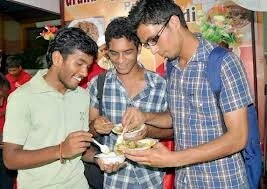 Because Islam’s “Law of Necessity” fully permits Muslims to find creative ways to adapt when Sharia Law conflicts with practical life, the argument that societies are obliged to make concessions to privilege all the demands of strict Sharia Law is considerably weakened.
Because Islam’s “Law of Necessity” fully permits Muslims to find creative ways to adapt when Sharia Law conflicts with practical life, the argument that societies are obliged to make concessions to privilege all the demands of strict Sharia Law is considerably weakened.
Islam Is a flexible religion: religious obligations allow exceptions, subject to circumstances. Muslim religious scholars balance countervailing obligations to determine when exceptions apply. Understanding such balancing of necessities in Islam is not only important for public policy, but also for understanding how an identical set of religious beliefs can be used to justify war or peace, terrorism or peaceful coexistence.
Fasting During a Ramadan Olympics
As the London Olympics are underway, London organizers of the Olympics, according to a report in the New York Times, are supporting the needs of Muslims athletes, “with more than 150 Muslim clerics on hand to assist athletes, as well as fast-breaking packs including dates and other traditional foods.”
As it is also the month of Ramadan, during which Muslims are obligated not to eat or drink, even their own saliva, from sunrise to sunset, spare a thought for the more than 3,500 Muslim competitors, who, if they strictly observed Ramadan, would be abstaining from food and drink from the first prayer of the day (Fajr) at 2.44 am through to the dusk prayer (Maghrib) at 8.53 pm (as at July 29, 2012, see Islamicfinder.org).
Optimum sporting performance cannot be expected from athletes who go without food or drink for over 18 hours — a circumstance which would not be fair to them.
Many Muslim Olympians now in London will therefore not be fasting. Some may rely on religious rulings (fatwas) which exempt sportspeople from the Ramadan fast, such as a ruling issued in 2010 by the German Central Council of Muslims, that Muslim professional footballers, because they depend upon football for their living, need not fast during Ramadan.
The United Emirates, using a different approach stated that players may omit the fast as long as they do not stay in one place for more than four days. This is based upon a standard exemption for travelers during Ramadan (Sahih Bukhari, 3:31:167). Another exemption, following advice from imams in Morocco, is being used by English Olympic rower Moe Sbihi, who announced that he will donate 60 meals to poor people in Morocco for each missed fast day. Many Olympic athletes are postponing their fasts until their sporting commitments are completed. However, the Moroccan football team are fasting and trusting that Allah will help them to victory. All Muslims agree that fasting is obligatory during Ramadan; they differ in the exceptions they make.
“Necessity”: Balancing What Is Forbidden with What Is Permitted
There is a powerful principle in Islamic jurisprudence, the “Law of Necessity,” that permits what is forbidden — the end justifying the means. If a goal is obligatory, then the means can also be obligatory, even if otherwise they might be forbidden.
In Islam the universe of possible human deeds is divided into what is obligatory, permitted neutral, disliked, or forbidden. Then there is the need to balance the pros and cons of every act. This is a world of choice which can embrace a necessary evil, or take a pass on a good deed for the sake of a greater good.
Some “Law of Necessity” exceptions go back to Muhammad; they are hard-wired into Islamic law. A case in point is the exemption for travelers during Ramadan, which some athletes rely on. Another exemption for travelers, which also comes straight from Muhammad, allows Muslims to catch up on prayer times later than the correct hour.
Life raises many complex challenges, and the balancing of obligations and prohibitions may require more subtle reasoning, dependent on context. The renowned medieval Muslim scholar al-Ghazali explained how the principle of balancing necessities can be used to make lying permitted or even compulsory, according to the circumstances:
“Speaking is a means to achieve objectives. If a praiseworthy aim is attainable through both telling the truth and lying, it is unlawful to accomplish it through lying because there is no need for it. When it is possible to achieve such an aim by lying but not by telling the truth, it is permissible to lie if attaining the goal is permissible … and obligatory to lie if the goal is obligatory . …” (The Reliance of the Traveller, p.745-46, paragraph r8.2)
Yusuf al-Qaradawy has written extensively about the jurisprudence of “balancing necessities.” He explains that interests and pros and cons of any deed must be balanced, one against each other and weighed carefully.
Al-Qaradawy’s focus was politics, not sport. He cited an example of the support given by the Islamist political leader Maulana Maududi to Fatima Jinnah in the 1965 presidential elections in Pakistan. Previously Maududi had declared that it was not permissible in Islam for a woman to govern (based on the teachings of Muhammad). He came, however, to regard Jinnah as the lesser of two evils, so he commanded his followers to vote for the female candidate, and against General Ayub Khan.
Understanding such balancing of necessities in Islam is important for public policy — to grasp how an identical set of religious beliefs can be used to justify war or peace, terrorism or peaceful coexistence — or any other decision, based solely on the circumstances at the time.
Balancing Necessities and Public Policy
Consider the issue of the timing of the Olympics: Was Juan Cole correct to suggest that the Olympic Games should be rescheduled so they did not fall in Ramadan?
The fact that the “Law of Necessity” allows Muslims to get around restrictions suggests that although it might certainly have been thoughtful or considerate, it would not in any way necessary to reschedule the Olympics for the sake of Muslim religious sensitivities.
The possibility of balancing necessities needs to be taken into account when organizations and governments are faced with demands that they make concessions for the sake of complying with Islamic Sharia Law. Because the Islamic “Law of Necessity” fully permits Muslims to find creative ways to adapt when Sharia law conflicts with practical life, the argument that societies are obliged to make concessions to privilege all the strict demands of Sharia Law is considerably weakened.
Non-Muslims in particular need to take balancing necessities into account. Consider Sheikh Ahmed al-Mahlawi of Egypt who accepts that it is not a sin for Muslim religious scholars to see women in the streets with unveiled faces: the need for Muslim scholars to get around in public places outweighs the prohibition against men seeing women’s unveiled faces. He boasted, all the same, that he had compelled a US consular official to wear the hijab [headscarf] when she met with him. If the U.S. official had been better informed, she might have asked that Sheikh al-Mahlawi take a more moderate, balanced approach. She might have refused to submit to the hijab, pointing out that the Sheikh copes very well with looking at the unveiled faces of women whenever he goes into the street.
Balancing Necessity and Terrorism
Al-Qaradawi concluded that although it is wrong in general for Muslims to participate in non-Islamic governments or to make alliances with non-Muslim nations, compromises may be made when such lesser evils are ‘balanced’ against the greater good of the Muslim cause.
He also made the observation that many of the conflicts between different factions working for the success of Islam exist because of different interpretations about how to “balance” the different necessities and interests in Islam. Of course, Muslims who agree on their fundamental principles of faith can have very different views on how to balance these beliefs in any given situation.
Jihadi [holy war] martyrs make use of theological balancing necessities when they justify their methods for killing enemies. In Islam, for example, it is forbidden to kill oneself, but suicide, if it can be justified in the cause of Allah or furthering Islam, is not only permissible but heroic. Jihadi clerics are more than willing to write fatwas which ensure that a would-be martyr goes to his death with a clear conscience.In Islam, it is forbidden to kill women and children, but “collateral damage” is acceptable if a greater end is in sight. It is also forbidden in Islam to lie, but it is recommended that a pious jihadi using taqiyya [dissimulation] if necessary to achieve, say, a “martyrdom operation.” The Al-Qaeda manual, for instsnce, appeals to the principle that “necessity permits the forbidden” to justify criminal acts; and the Indonesian jihad cleric Abu Bakar Bashir argued that jihadis were entitled to hack foreigner’s bank accounts to obtain funds (see The Crime-Terror Nexus, New York State Office of Homeland Security). (For a bizarre example of the extremes to which jihad fatwas can go, see this report by Raymond Ibrahim.)
The ramifications can be momentous for Muslims and non-Muslims alike: consider the difference in opinion between the Saudi leaders and Usama Bin Ladin concerning the presence of American soldiers in the Kingdom after the invasion of Kuwait. Bin Ladin opposed this infidel ‘occupation’. In his 1996 fatwa declaring war on America he counted the presence of US soldiers as “one of the worst catastrophes to befall the Muslims” since the death of Muhammad.
Saudia Arabia’s Grand Mufti and supreme religious authority Sheikh Ibn Baz, however, allowed American troops into Saudi Arabia, although in another fatwa he had stated that Christian servants could not be employed in Arabia:
”It is not allowed to have a non-Muslim maid. It is not allowed to have a non-Muslim male or a non-Muslim female servant, or a worker who is a non-Muslim for anyone living in the Arabian peninsula. This is because the Prophet Muhammad ordered the Jews and Christians to be expelled from that land. He ordered that only Muslims should be left there. He decreed upon his death that all polytheists must be expelled from this Peninsula. (Islamic Fatawa Regarding Women, p. 36 compiled by Abdul Malik Mujahid).
Both Usama Bin Ladin and the Saudi authorities agreed on the principle that infidels could not be permitted to live in Saudi Arabia. What they disagreed on was how to balance this against other requirements, such as the need to safeguard the Kingdom of Saudi Arabia. This difference was enough to trigger Bin Ladin’s war on America.
What distinguishes a jihadi terrorist from a more peaceful Muslim, therefore, may not be any fundamental difference in belief, but, as in the West, merely in a given instance, how the religious legal principles of his faith should be applied.
SOURCE:GATESTONE



















